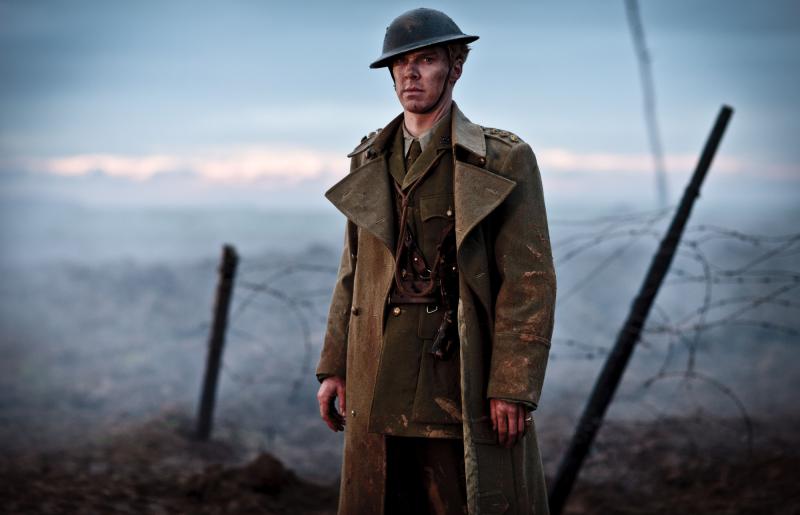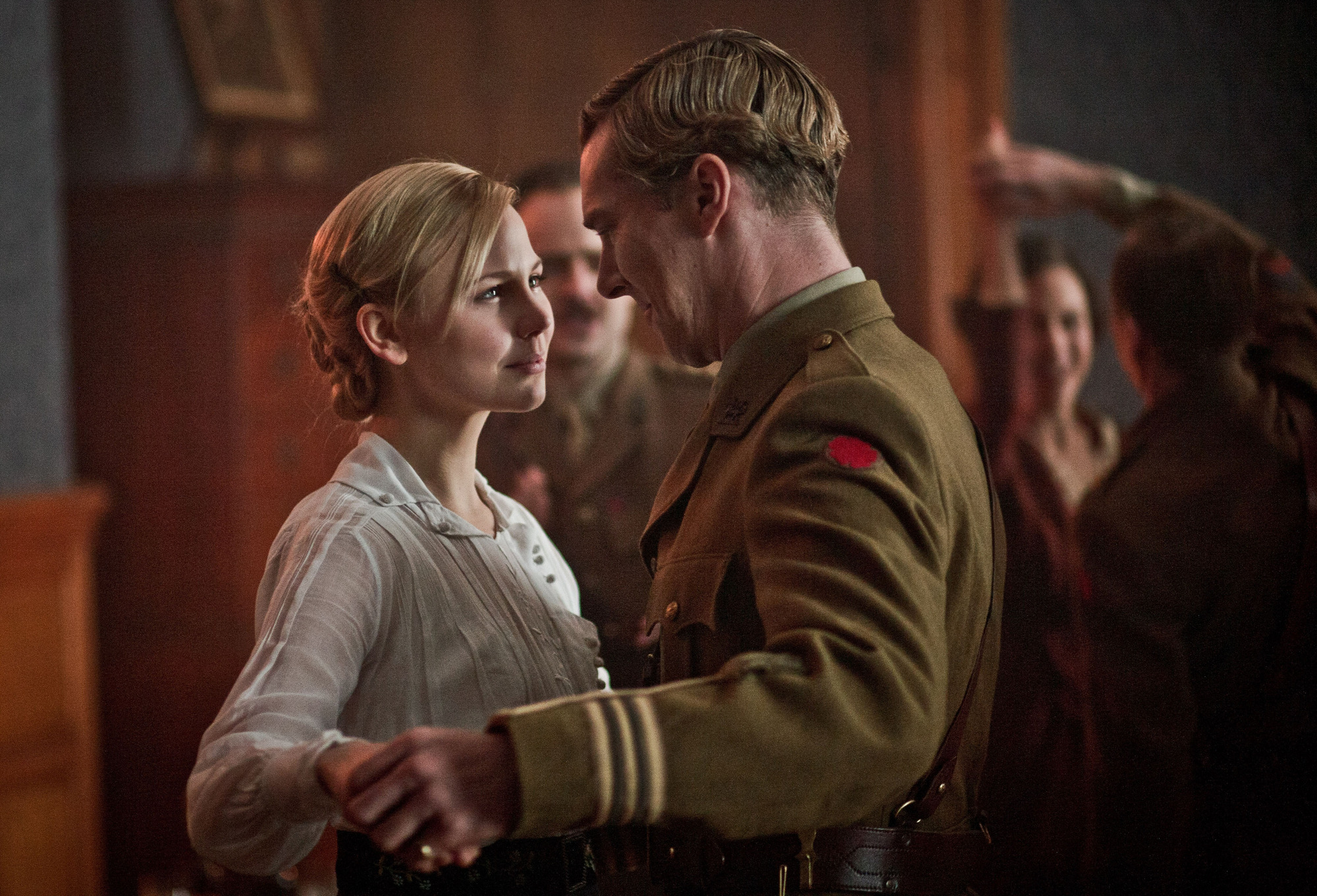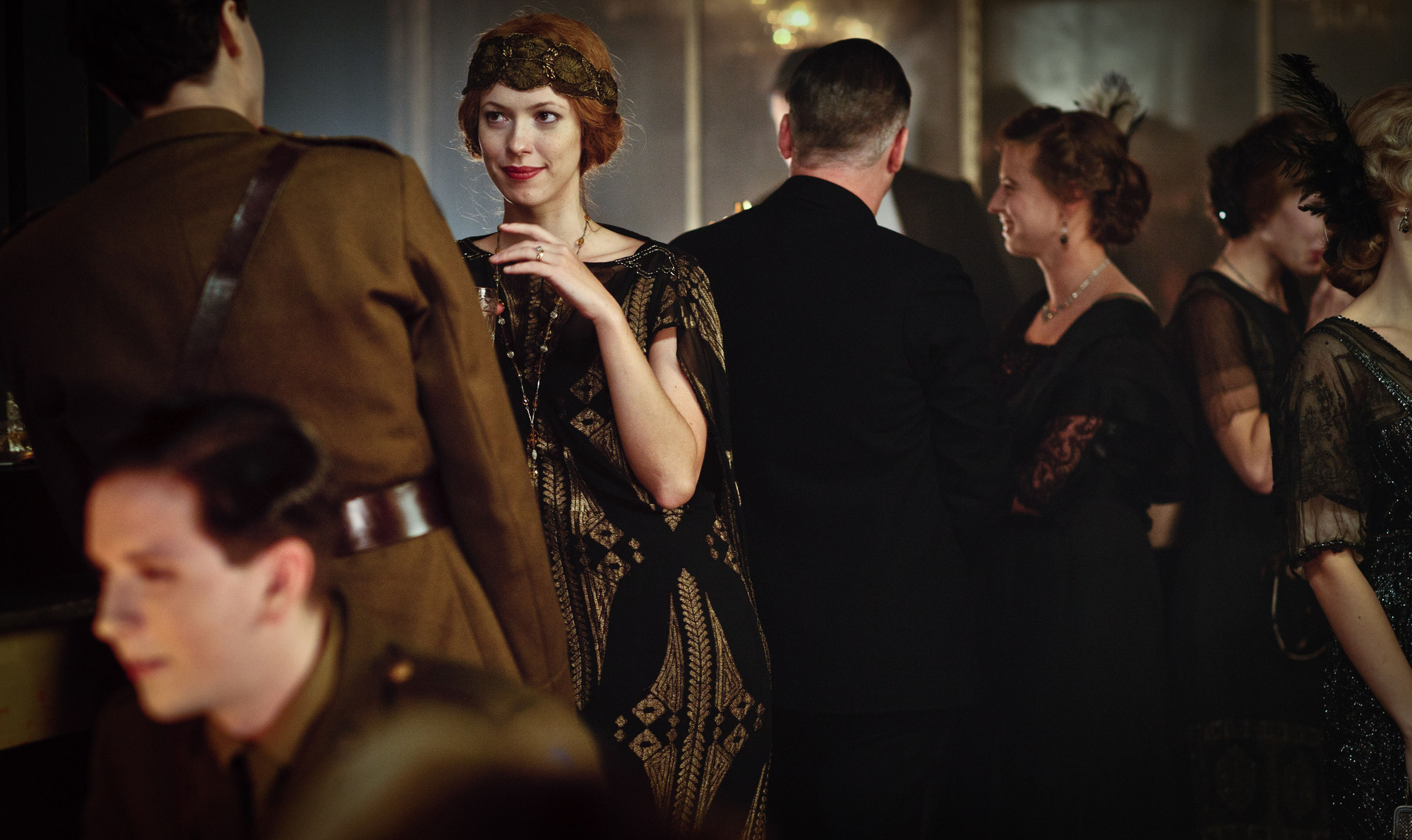Parade's End, Series Finale, BBC Two | reviews, news & interviews
Parade's End, Series Finale, BBC Two
Parade's End, Series Finale, BBC Two
Tom Stoppard's Ford Madox Ford adaptation wraps up on an emotionally rich if structurally flawed note

"There used to be among families...a position, a certain...call it 'parade'." So stammered Benedict Cumberbatch's rigidly principled, increasingly broken Christopher Tietjens at the climax of last week's penultimate Parade's End, echoing his own line from the series' first episode as he struggled to justify his fidelity to adulterous wife Sylvia (Rebecca Hall).
In the kind of verbally shrewd reversal that has defined Tom Stoppard's meticulous, occasionally magnificent script, a frustrated General Campion told him "there are no more parades for that regiment". Tietjens was the last man in line, and the finale fittingly saw him abandoning his post at long last.
You would have to be made of stone not to have been charmed by the pair's final shy, smiley dance together
That's in the metaphorical sense, rather than the literal – the episode in fact found Tietjens heading into the trenches to become second in command to a battalion, following an enjoyably farcical fight with clownish cuckolder Potty Perowne (Tom Mison). Cumberbatch has spent much of his performance looking on the verge of tears, and there's never been better reason than in this final hour.
First tasked with the alien responsibility of offering comfort to his terrified fellow officers – his clinical reassurance that one's faculties cease immediately before death could not have felt more perfectly in character – he's then burdened with the discovery that his would-be commanding officer had been driven mad by war. The revelation made for one of the episode's subtlest and most haunting scenes, a sub-Colonel Kurtz exchange in a darkened tent that somehow says more about the impact of war on men than any of the later trench action.
 Tietjens could easily have been a tricky character to invest in without the inner monologue provided by the page, but Cumberbatch's performance has been faultless and often achingly moving, a painful juxtaposition of emotional stiffness and deep, crippling vulnerability. And with Tietjens finally stirred by war to relax his iron grip on past values, his endlessly frustrated romance with meek suffragette Valentine Wannop (Adelaide Clemens. pictured above) finally found some resolution.
Tietjens could easily have been a tricky character to invest in without the inner monologue provided by the page, but Cumberbatch's performance has been faultless and often achingly moving, a painful juxtaposition of emotional stiffness and deep, crippling vulnerability. And with Tietjens finally stirred by war to relax his iron grip on past values, his endlessly frustrated romance with meek suffragette Valentine Wannop (Adelaide Clemens. pictured above) finally found some resolution.
The relationship has remained touching largely by virtue of its relative absence from the actual narrative – one suspects Valentine's rather ill-defined character would have begun to grate otherwise, but their separation allowed her to be cast as little more than A Good Thing, which we want Tietjens to have at long last because he is A Good Man. And cynicism aside, you would have to be made of stone not to have been charmed by the pair's final shy, smiley dance together.
Hall, an endlessly watchable and intelligent actress, has valiantly steered the character of Sylvia away from the vampy soap opera villain she at times threatened to become, but her final, desperate maneuvering here felt a shade wearisome; the same character beat played just one time too many. Still, her confrontation with Tietjens and her love rival Valentine (for whom she's invented a series of hugely entertaining and patently Stoppard nicknames), much like her bedside confession last week, allowed for shadings of something much quieter and sadder from Hall.
 Sylvia (pictured left) may in fact have been the most notable casualty of this episode's odd, jumpy structure, which felt far more pronounced than in previous instalments. It's substantially more difficult to feel sympathy for a spoilt and wilfully selfish housewife when her scenes are regularly intercut with scenes of trench warfare. Moreover, even the trench warfare never quite gathered the emotional momentum it should have, because it was in turn intercut with humdrum updates from the domestic front. Dividing the two plotlines, rather than trying to combine them through editing and somewhat clumsy segues, might have made for a smoother finale.
Sylvia (pictured left) may in fact have been the most notable casualty of this episode's odd, jumpy structure, which felt far more pronounced than in previous instalments. It's substantially more difficult to feel sympathy for a spoilt and wilfully selfish housewife when her scenes are regularly intercut with scenes of trench warfare. Moreover, even the trench warfare never quite gathered the emotional momentum it should have, because it was in turn intercut with humdrum updates from the domestic front. Dividing the two plotlines, rather than trying to combine them through editing and somewhat clumsy segues, might have made for a smoother finale.
Nevertheless, Parade's End has been a compelling, thematically rich and fiercely intelligent drama, as frequently moving as it was unexpectedly comedic. Adapting a tetralogy as sprawling and historically expansive as Ford Madox Ford's is close to a fool's errand, and Stoppard, director Susanna White, Cumberbatch et al have pulled it off with valiance and grace. Unlike the ITV drama to which it has been pointlessly compared, this is a series that will continue to reward on rewatching.
Share this article
Subscribe to theartsdesk.com
Thank you for continuing to read our work on theartsdesk.com. For unlimited access to every article in its entirety, including our archive of more than 15,000 pieces, we're asking for £5 per month or £40 per year. We feel it's a very good deal, and hope you do too.
To take a subscription now simply click here.
And if you're looking for that extra gift for a friend or family member, why not treat them to a theartsdesk.com gift subscription?
more TV
 Road Diary: Bruce Springsteen and the E Street Band, Disney+ review - the Boss grows older defiantly
Thom Zimny's film reels in 50 years of New Jersey's most famous export
Road Diary: Bruce Springsteen and the E Street Band, Disney+ review - the Boss grows older defiantly
Thom Zimny's film reels in 50 years of New Jersey's most famous export
 Industry, BBC One review - bold, addictive saga about corporate culture now
Third season of the tale of investment bankers reaches a satisfying climax
Industry, BBC One review - bold, addictive saga about corporate culture now
Third season of the tale of investment bankers reaches a satisfying climax
 Rivals, Disney+ review - adultery, skulduggery and political incorrectness
Back to the Eighties with Jilly Cooper's tales of the rich and infamous
Rivals, Disney+ review - adultery, skulduggery and political incorrectness
Back to the Eighties with Jilly Cooper's tales of the rich and infamous
 Disclaimer, Apple TV+ review - a misfiring revenge saga from Alfonso Cuarón
Odd casting and weak scripting aren't a temptation to keep watching
Disclaimer, Apple TV+ review - a misfiring revenge saga from Alfonso Cuarón
Odd casting and weak scripting aren't a temptation to keep watching
 Ludwig, BBC One review - entertaining spin on the brainy detective formula
David Mitchell is a perfect fit for this super-sleuth
Ludwig, BBC One review - entertaining spin on the brainy detective formula
David Mitchell is a perfect fit for this super-sleuth
 The Hardacres, Channel 5 review - a fishy tale of upward mobility
Will everyday saga of Yorkshire folk strike a popular note?
The Hardacres, Channel 5 review - a fishy tale of upward mobility
Will everyday saga of Yorkshire folk strike a popular note?
 Joan, ITV1 review - the roller-coaster career of a 1980s jewel thief
Brilliant performance by Sophie Turner as 'The Godmother'
Joan, ITV1 review - the roller-coaster career of a 1980s jewel thief
Brilliant performance by Sophie Turner as 'The Godmother'
 The Penguin, Sky Atlantic review - power, corruption, lies and prosthetics
Colin Farrell makes a beast of himself in Batman spin-off
The Penguin, Sky Atlantic review - power, corruption, lies and prosthetics
Colin Farrell makes a beast of himself in Batman spin-off
 A Very Royal Scandal, Prime Video review - a fairly sound reimagining, but to what end?
The acting is first-rate, but it has no satisfying dramatic goal
A Very Royal Scandal, Prime Video review - a fairly sound reimagining, but to what end?
The acting is first-rate, but it has no satisfying dramatic goal
 Nightsleeper, BBC One review - strangers on a runaway train
Six-part thriller goes off the rails
Nightsleeper, BBC One review - strangers on a runaway train
Six-part thriller goes off the rails
 The Perfect Couple, Netflix review - an inconvenient death ruins lavish Nantucket wedding
Liev Schreiber steals the show in adaptation of Elin Hilderbrand's novel
The Perfect Couple, Netflix review - an inconvenient death ruins lavish Nantucket wedding
Liev Schreiber steals the show in adaptation of Elin Hilderbrand's novel
 Sambre: Anatomy of a Crime, BBC Four review - satisfying novelistic retelling of a French true crime saga
Compelling story of a rapist who hid in plain sight for 30 years
Sambre: Anatomy of a Crime, BBC Four review - satisfying novelistic retelling of a French true crime saga
Compelling story of a rapist who hid in plain sight for 30 years

Add comment